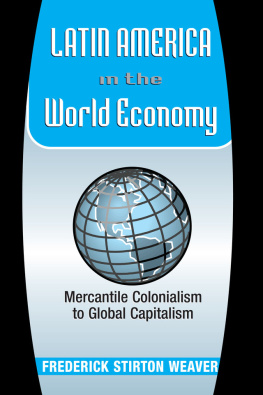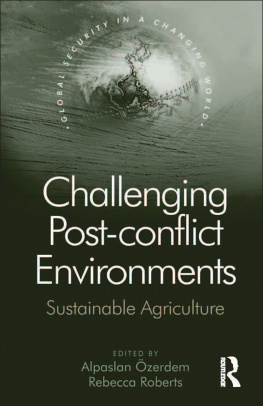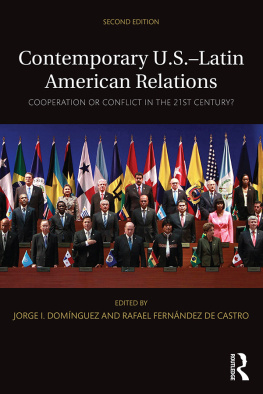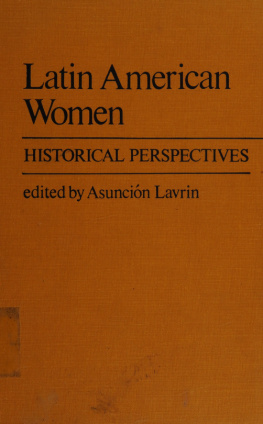
Technical Change and Social Conflict in Agriculture
Westview Replica Editions
The concept of Westview Replica Editions is a response to the continuing crisis in academic and informational publishing. Library budgets for books have been severely curtailed. Ever larger portions of general library budgets are being diverted from the purchase of books and used for data banks, computers, micromedia, and other methods of information retrieval. Interlibrary loan structures further reduce the edition sizes required to satisfy the needs of the scholarly community. Economic pressures on the university presses and the few private scholarly publishing companies have severely limited the capacity of the industry to properly serve the academic and research communities. As a result, many manuscripts dealing with important subjects, often representing the highest level of scholarship, are no longer economically viable publishing projectsor, if accepted for publication, are typically subject to lead times ranging from one to three years.
Westview Replica Editions are our practical solution to the problem. We accept a manuscript in camera-ready form, typed according to our specifications, and move it immediately into the production process. As always, the selection criteria include the importance of the subject, the works contribution to scholarship, and its insight, originality of thought, and excellence of exposition. The responsibility for editing and proofreading lies with the author or sponsoring institution. We prepare chapter headings and display pages, file for copyright, and obtain Library of Congress Cataloging in Publication Data. A detailed manual contains simple instructions for preparing the final typescript, and our editorial staff is always available to answer questions.
The end result is a book printed on acid-free paper and bound in sturdy library-quality soft covers. We manufacture these books ourselves using equipment that does not require a lengthy make-ready process and that allows us to publish first editions of 300 to 600 copies and to reprint even smaller quantities as needed. Thus, we can produce Replica Editions quickly and can keep even very specialized books in print as long as there is a demand for them.
About the Book and Editors
Technical Change and Social Conflict in Agriculture: Latin American Perspectives
edited by Martn Pieiro and Eduardo Trigo
Incorporating case studies of technological change in six Latin American countries, this book presents the results of a large cooperative research project (PROTAAL) that has led to a new interpretation of the process of technical change in agricultural development. The contributors contrast the perspective emerging from PROTAAL with two other views of technical change in agriculture: the theory of induced innovation and the political economy approach. They then describe the methodology developed by PROTAAL, which is highlighted in their analysis of the case studies. In the concluding chapters, the authors address important issues concerning the organization of agricultural research activities at the national and international levels and consider theoretical and policy implications for the analysis of technical change in Latin American agriculture.
Martn Pieiro, formerly coordinator of the Cooperative Research Project on Agricultural Technology in Latin America (PROTAAL) at the Inter-American Institute for Cooperation on Agriculture (IICA), is a researcher at the Centro de Investigaciones Sociales sobre el Estado y la Administracin in Argentina. Eduardo Trigo is co-coordinator of PROTAAL and coordinator of the Institutional Task Force on Technology Transfer and Adoption at IICA.
A similar English version of Chapter 3 was published in Food Policy (England), Vol. 4, No. 3: 169177, 1979.
A similar Spanish version of Chapter 4 was published in Comercio Exterior (Mexico), Vol. 31, No. 3: 303318, 1981.
A similar Spanish version of Chapter 6 was accepted for publication in Desarrollo Econmico (Argentina).
A similar English version of Chapter 7 was accepted for publication in Food Policy (England) in 1983. A Spanish version of the same chapter was published in Desarrollo Econmico (Argenti-Vol. 21, No. 84: 435468, 1982.
A similar Spanish version of Chapter 8 was accepted for publication in Comercio Exterior (Mxico).
Published 2019 by Routledge
52 Vanderbilt Avenue, New York, NY 10017
2 Park Square, Milton Park, Abingdon, Oxon OX14 4RN
Routledge is an imprint of the Taylor & Francis Group, an informa business
Copyright 1983 Taylor & Francis
All rights reserved. No part of this book may be reprinted or reproduced or utilised in any form or by any electronic, mechanical, or other means, now known or hereafter invented, including photocopying and recording, or in any information storage or retrieval system, without permission in writing from the publishers.
Notice:
Product or corporate names may be trademarks or registered trademarks, and are used only for identification and explanation without intent to infringe
Library of Congress Catalog Card Number: 83-50881
ISBN 13: 978-0-367-28956-0 (hbk)
Contents
Vernon W. Ruttan
Phillip LeVeen and Alain de Janvry
Martn Pieiro, Eduardo Trigo and Ral Fiorentino
Martn Pieiro, Ral Fiorentino, Eduardo Trigo, Alvaro Balczar and Astrid Martnez
Jorge Federico Sbato
Eduardo Trigo, Martn Pieiro and Jorge Sbato
Martn Pieiro and Eduardo Trigo
Eduardo Trigo and Martn Pieiro
John K. Coulter
Donald D. Evenson and Robert E. Evenson
Martn Pieiro and Eduardo Trigo
An Induced Innovation Interpretation of Technical Change in Agriculture in Developed Countries:
Aspects of the Political Economy of Technical Change in Developed Economies:
Social Relations of Production, Conflict and Technical Change: The Case of Sugar Production in Colombia:
Agriculture in the Argentine Pampas: Technology Adoption in Corn Cultivation from 1950 to 1978:
Technology as a Social Issue: Agricultural Research Organization in Latin America:
Social Articulation and Technical Change:
International Technology: The International Agricultural Research Centers:
Legal Systems and Private Sector Incentives for the Invention of Agricultural Tech-nology in Latin America:
An Induced Innovation Interpretation of Technical Change in Agriculture in Developed Countries:
Social Relations of Production, Conflict and Technical Change: The Case of Sugar Pro-duction in Colombia:
Agriculture in the Argentine Pampas: Technology Adoption in Corn Cultivation from 1950 to 1978:
International Technology: The International Agricultural Research Centers:
Legal Systems and Private Sector Incentives for the Invention of Agricultural Technol-ogy in Latin America:
This book presents the intellectual production of the first phase of the Cooperative Research Project on Agricultural Technology in Latin America (PROTAAL) and the most relevant papers presented by invitees at a meeting held in San Jos, Costa Rica in September 1981.







